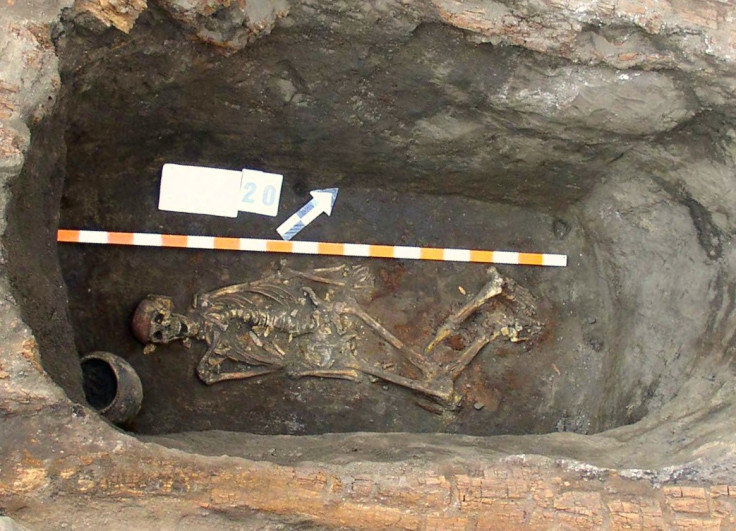Europeans are Getting Whiter, Ancient DNA Proves

Europeans are getting whiter, with lighter hair and eye pigmentation, researcher have discovered.
An international team including anthropologists from Johannes Gutenberg University Mainz and geneticists at UCL analysed the DNA from 5,000-year-old skeletons.
They found evidence that Europeans used to have darker skin, hair and eyes, with further analysis showing this change was a result of natural selection.
Published in the Proceedings of the National Academy of Sciences, the researchers said that while echoes of natural selection in modern humans have been detected for years, tests have never been accurate.
The researchers analysed DNA from prehistoric skeletons and compared the data with genomes of modern Europeans through computer simulations.
They found selection had a significant impact on appearance, with sustained changes taking place – researchers said genetic changes could not be explained through the randomness of inheritance so natural selection must have played a role.
Sandra Wilde, from JGU, said: "Prehistoric Europeans in the region we studied would have been consistently darker than their descendants today. This is particularly interesting as the darker phenotype seems to have been preferred by evolution over hundreds of thousands of years. All our early ancestors were more darkly pigmented."
The study follows research by The Institute of Cancer Research in London, which found black skin evolved to protect people from skin cancer. Paler skin evolved about 50 - 80,000 years ago to allow for better absorption of Vitamin D in less sunny climates of Europe.
The UCL/JGU team said they did not expect to find natural selection favouring lighter pigmentation over the last few thousand years.
Explaining possible reasons for the change, Mark Thomas from UCL said: "Perhaps the most obvious is that this is the result of adaptation to the reduced level of sunlight in northern latitudes.
"Most people of the world make most of their vitamin D in their skin as a result UV exposure. But at northern latitudes and with dark skin, this would have been less efficient. If people weren't getting much vitamin D in their diet, then having lighter skin may have been the best option."
Wilde added: "But this vitamin D explanation seems less convincing when it comes to hair and eye colour. Instead, it may be that lighter hair and eye colour functioned as a signal indicating group affiliation, which in turn played a role in the selection of a partner."
Senior author of the study, Joachim Burger, said that while certain characteristics have been inherited through natural selection for survival, not all aspects remain beneficial today. "The characteristics handed down as a result of sexual selection can be more often explained as the result of preference on the part of individuals or groups rather than adaptation to the environment," he explained.
© Copyright IBTimes 2025. All rights reserved.






















